1 min to read
How to install JENKINS on Linux ?
Learn Jenkins and it's installation

What is Jenkins?
Jenkins is an open source automation tool written in Java with plugins built for Continuous Integration purpose. Jenkins is used to build and test your software projects continuously making it easier for developers to integrate changes to the project, and making it easier for users to obtain a fresh build. It also allows you to continuously deliver your software by integrating with a large number of testing and deployment technologies.
It is a server-based system that runs in servlet containers such as Apache Tomcat
How To Install it ?
Here,I am using my own Linux (Debian) machine and Long Term Support (LTS) Jenkins 2.222.3.
- It can be installed from the debian-stable apt repository.
wget -q -O - https://pkg.jenkins.io/debian-stable/jenkins.io.key | sudo apt-key add -
sudo sh -c 'echo deb https://pkg.jenkins.io/debian-stable binary/ > \
/etc/apt/sources.list.d/jenkins.list'
sudo apt-get update
sudo apt-get install jenkins

Else we can visit Jenkins Debian packages page manually
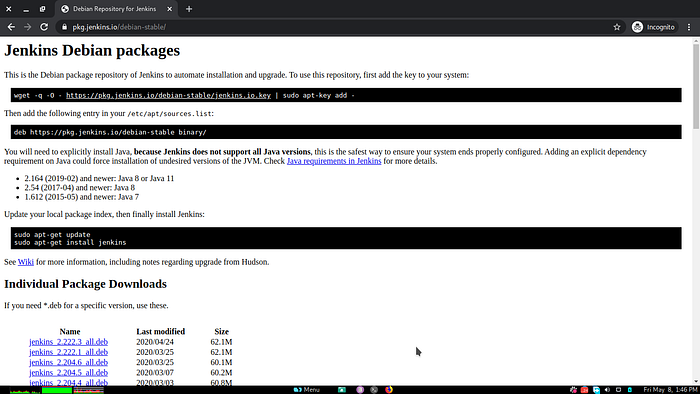
Commands used for the Jenkins Services
Starting Jenkins
$ sudo systemctl start jenkins.service
Stopping Jenkins
$ sudo systemctl stop jenkins.service
Restarting Jenkins
$ sudo systemctl restart jenkins.service
Unlock Jenkins Default Password
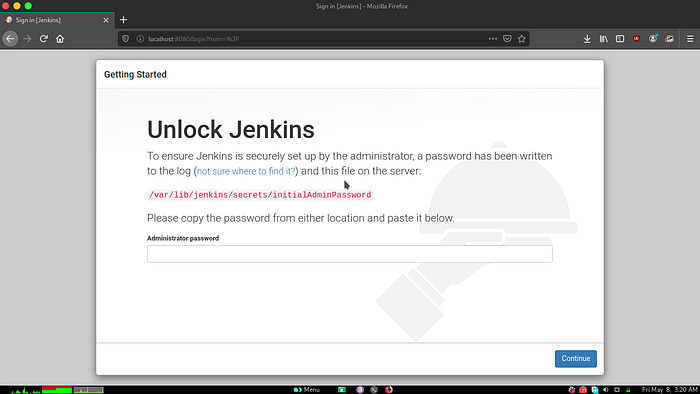
To unlock default password, go to the mentioned path (/var/lib/jenkins/secrets/initialAdminPassword )using terminal
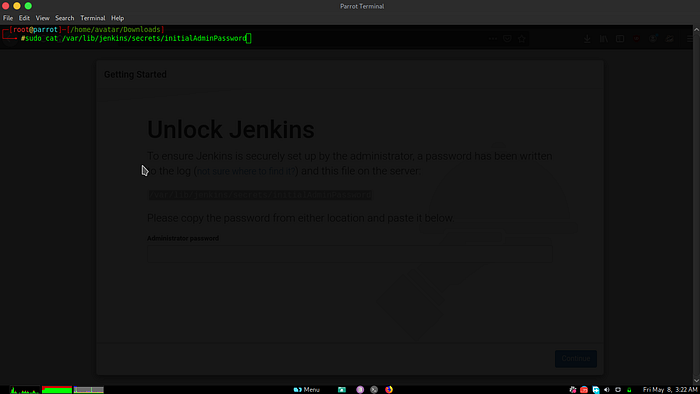
Copy and paste password
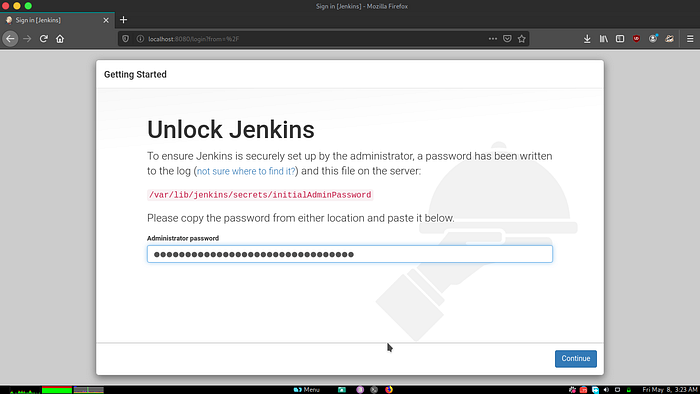
Select Install suggested plugins or else choose according to your preference.
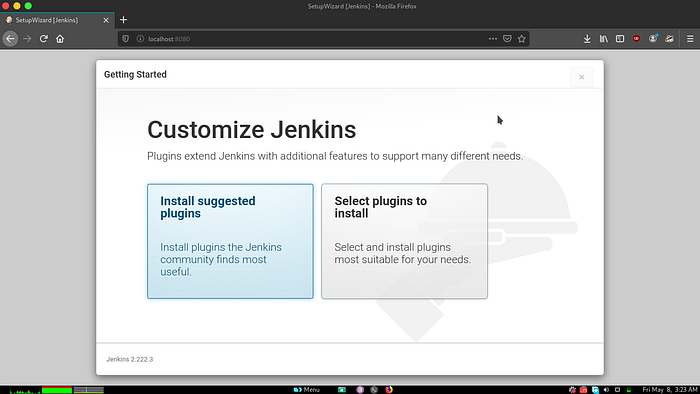
Getting started

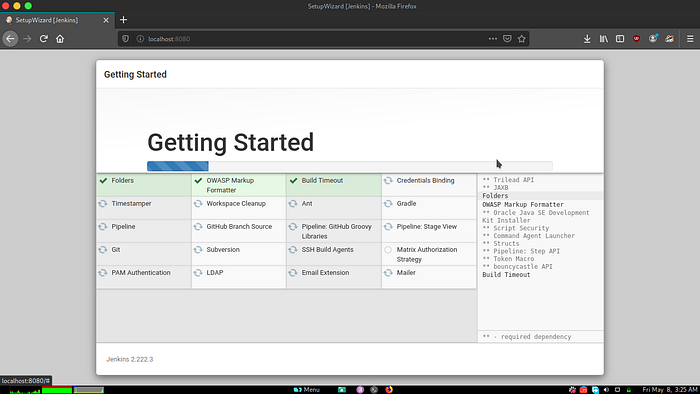
Admin Setup
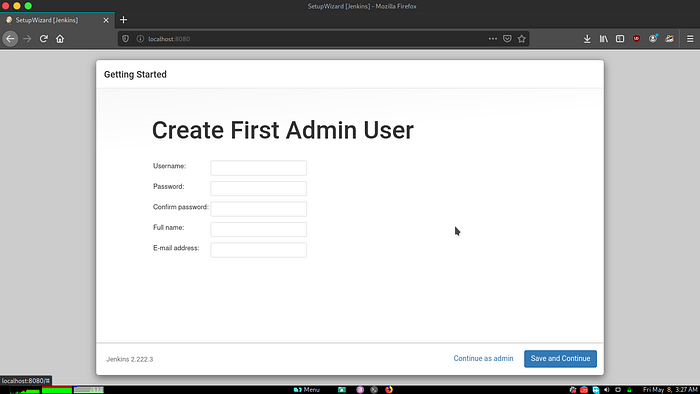
By default Jenkins runs on port 8080 but feel free to change it according to use cases.
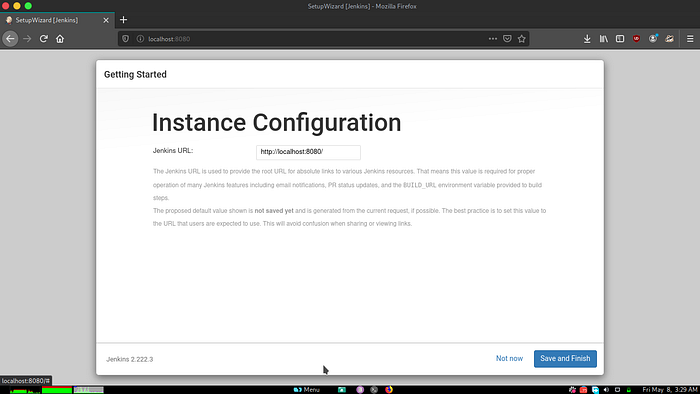
Ready to use
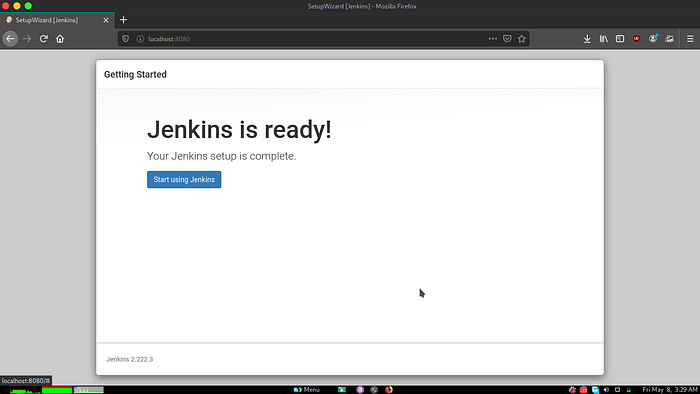
Jenkins Home
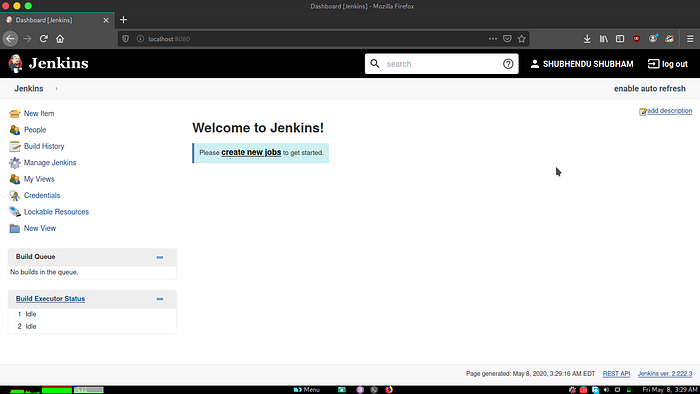


Comments